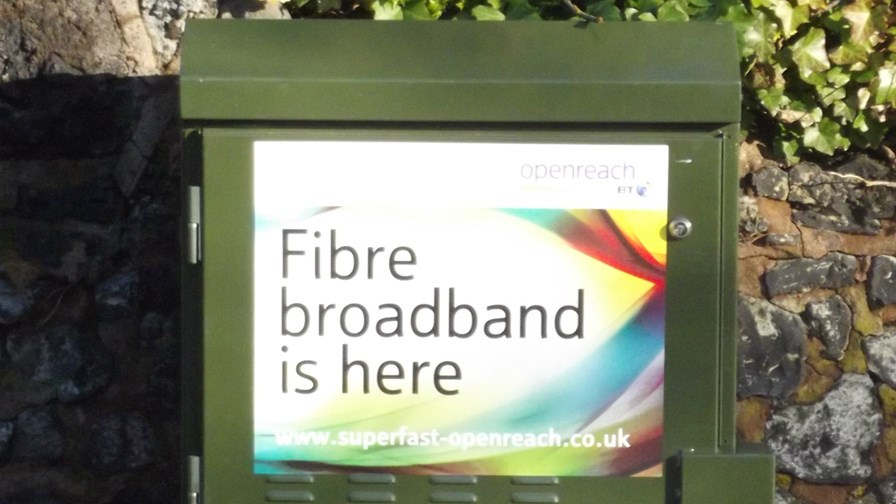Life at the margins: Ofcom proposes regular testing of BT's access pricing to prevent painful ‘margin squeeze’

via Flickr © ell brown (CC BY 2.0)
Ofcom has finally made a move in the increasingly fraught area of unbundling and the role of Openreach and its relationship to BT.
Competitive broadband providers have become nervous that they’ll be sidelined by BT’s move into VDSL ‘superfast’ broadband simply because the interconnection point has moved to the street cabinet and is less accessible to unbundling parties. They have been pressing Ofcom to ensure that BT doesn’t blur the separation between itself and Openreach to its own advantage through the technology change.
Any gerrymandering of LLU would be a blow to the likes of Talktalk and Sky which between them now (according to BT) have 40 per cent of the access market.
So Ofcom is proposing to more closely regulate and monitor with regular testing the all-important margin between retail services and the unbundled lines which support them to ensure that BT doesn’t ‘margin squeeze’ its competitors in the UK broadband market over time.
It has sent a draft decision to the European Commission recommending a new pricing rule which it maintains will allow BT to flexibly set wholesale prices and give it an incentive to invest in infrastructure, but at the same time to ensure that the margin between wholesale and final retail pricing is maintained at a level within which its competitors could actually make a profit.
BT of course, is playing the put-upon injured party, and says the periodic testing idea put forward by Ofcom is “misconceived, but not unexpected.” Quite why monitoring BT’s margins to ensure it’s playing fair on unbundling is ‘misconceived’ hasn’t been adequately explained. BT says it objects to its BT Sport’s costs being included in the calculations, but the general tone is that Ofcom is being unfair to persecute BT in this way and that Sky and TalkTalk are big enough and ugly enough to look after themselves.
In fact the approach Ofcom has taken is perfectly well conceived. Let’s remember what’s going on here. Back in 2006 BT agreed that it would separate out its local access network from the rest of its business and form Openreach which would run separately within the BT group, running its own P&L and all the rest of it.
The whole idea was to extend the same terms and conditions to rival retail telecoms companies and ISPs as were extended to BT’s own services arms - that way fair unbundling and pricing of local loops could be better ensured since the regulator could see all the numbers and make sure that all the retail telcos were operating on an even playing field.
The Openreach agreement followed several years of rear-guard action from BT to slow the implementation of effective LLU. The establishment of Openreach ended all that and in return for showing willing, the regulatory strings governing BT’s voice services were loosened, allowing BT to set its own prices for voice. In the wake of full unbundling, broadband adoption soared in the UK
One of the weaknesses with the approach, however, and fully understood by all the participants, was that over time, and as the technology changed, there was a danger that BT could squeeze the margin between wholesale and retail pricing thus disadvantaging the unbundlers and advantaging BT Group. Essentially BT could make more profits from Openreach by upping line rental and lowering the retail price, leaving its competitors in the lurch.
With the move to what BT calls superfast Fibre Broadband (in fact it’s VDSL) BT’s competitors were getting very nervous. BT has made it clear that it regarded unbundling fibre at the street cabinet as unwieldy and unnecessary. Instead it got the go-ahead from Ofcom to institute ‘virtual unbundling’. Virtual unbundling is supposed to offer all the apparent advantages and features of ‘standard’ unbundling including line and bandwidth management, so that the unbundling operators were able to differentiate their offerings from the incumbent. This approach was given a green light by the EU with the stipulation that it be viewed as a temporary measure only, with ‘full’ unbundling to be implemented when possible. Which is where we currently stand.
With virtual unbundling the underlying costs and economies are even harder to chase down, of course, hence the need now for Ofcom’s regular check-ups.
Email Newsletters
Sign up to receive TelecomTV's top news and videos, plus exclusive subscriber-only content direct to your inbox.




